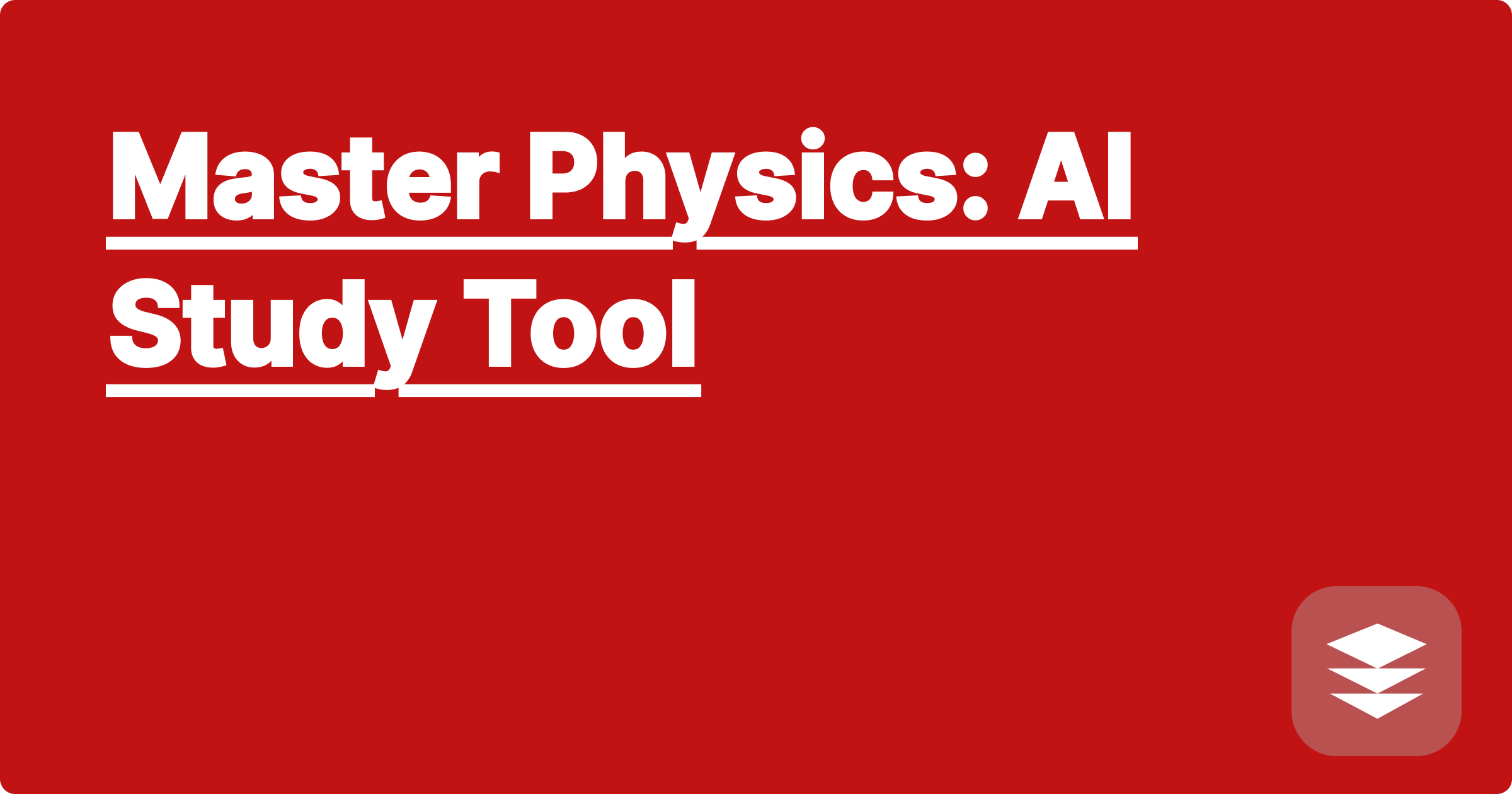
STEM fields, particularly physics, often present a formidable challenge to students and researchers. Grasping complex concepts, solving intricate problems, and staying abreast of the latest research can be daunting. Fortunately, the rise of artificial intelligence offers powerful tools that can significantly alleviate these difficulties and unlock new possibilities for learning and discovery. AI can serve as a personalized tutor, a research assistant, and a powerful problem-solving partner, transforming the way we approach physics education and research.
This transformation is particularly relevant for STEM students and researchers struggling with the demanding nature of physics. AI can provide personalized support tailored to individual learning styles and research needs. It can offer step-by-step guidance through complex problem-solving, clarify confusing concepts, and even generate creative solutions. By leveraging these tools, students can gain a deeper understanding of physics principles, improve their problem-solving skills, and ultimately achieve academic success. Researchers can accelerate their work by using AI to analyze data, explore new hypotheses, and stay up-to-date with the latest advancements in the field.
Physics, at its core, is about understanding the fundamental laws governing the universe. From the smallest subatomic particles to the largest galaxies, physics seeks to explain how things work. This involves grappling with complex mathematical frameworks, abstract concepts, and often counterintuitive phenomena. Students often struggle with visualizing these concepts, applying formulas correctly, and connecting theoretical knowledge to real-world applications. Researchers face the challenge of sifting through vast amounts of data, formulating testable hypotheses, and designing experiments to validate their theories. The sheer volume of information and the complexity of the subject matter can be overwhelming. Traditional learning methods often fall short in providing the personalized support and interactive learning experiences needed to overcome these challenges.
AI tools like ChatGPT, Claude, and Wolfram Alpha offer a new paradigm for learning and research in physics. These tools can provide on-demand explanations of complex concepts, breaking down difficult ideas into easily digestible chunks. They can guide students through problem-solving steps, offering hints and feedback along the way. Researchers can use these tools to analyze complex datasets, identify patterns, and generate new hypotheses. Wolfram Alpha, in particular, excels at symbolic computations and can be used to solve complex equations, perform integrations, and visualize mathematical functions. ChatGPT and Claude can be invaluable for understanding the underlying principles behind these computations and connecting them to the broader context of physics.
To effectively use these AI tools, begin by clearly defining the problem or concept you want to explore. For example, if you're struggling with understanding the concept of momentum, you can ask ChatGPT or Claude to explain it in simple terms, providing examples and analogies. If you're stuck on a specific physics problem, you can input the problem statement into Wolfram Alpha or ChatGPT. Be sure to provide all the necessary information, including known variables and desired outputs. The AI tool will then process the information and provide a solution, often accompanied by step-by-step explanations. You can then review the solution, ask clarifying questions, and explore related concepts to deepen your understanding. For research tasks, you can use these tools to analyze data, explore different models, and generate new research questions.
Consider the problem of calculating the trajectory of a projectile launched at a specific angle and velocity. You can input the initial conditions, such as the launch angle, initial velocity, and gravitational acceleration, into Wolfram Alpha. Wolfram Alpha will then calculate the projectile's trajectory, providing information such as the maximum height, range, and time of flight. You might enter a query like "trajectory of projectile launched at 45 degrees with initial velocity 20 m/s". Alternatively, you can use ChatGPT or Claude to explain the underlying physics principles governing projectile motion, such as the equations of motion and the concept of parabolic trajectories. Another example could be understanding the concept of quantum entanglement. You can ask ChatGPT or Claude to explain this phenomenon in simple terms and provide examples of its applications. These AI tools can also be used to explore complex formulas like the Schrödinger equation, providing insights into its meaning and applications.
To maximize the benefits of AI in your physics studies and research, actively engage with the tools. Don't just passively receive information; ask questions, explore different approaches, and challenge the AI's responses. Use these tools as a supplement to, not a replacement for, traditional learning methods. Attend lectures, read textbooks, and work through practice problems. AI tools can enhance your learning experience, but they are most effective when used in conjunction with other learning strategies. Develop a critical mindset and always verify the information provided by AI tools against reliable sources. Remember that AI is a tool, and its effectiveness depends on how you use it.
In conclusion, AI offers a powerful set of tools for mastering physics. By understanding how to effectively leverage these tools, students and researchers can overcome the challenges of this demanding field and unlock new possibilities for learning and discovery. Start exploring these AI tools today and experience the transformative power of AI in physics education and research. Embrace these advancements and integrate them into your workflow to enhance your understanding and accelerate your progress in the fascinating world of physics.
AI: Your Coding Homework Buddy
AI: Automate Engineering Tasks